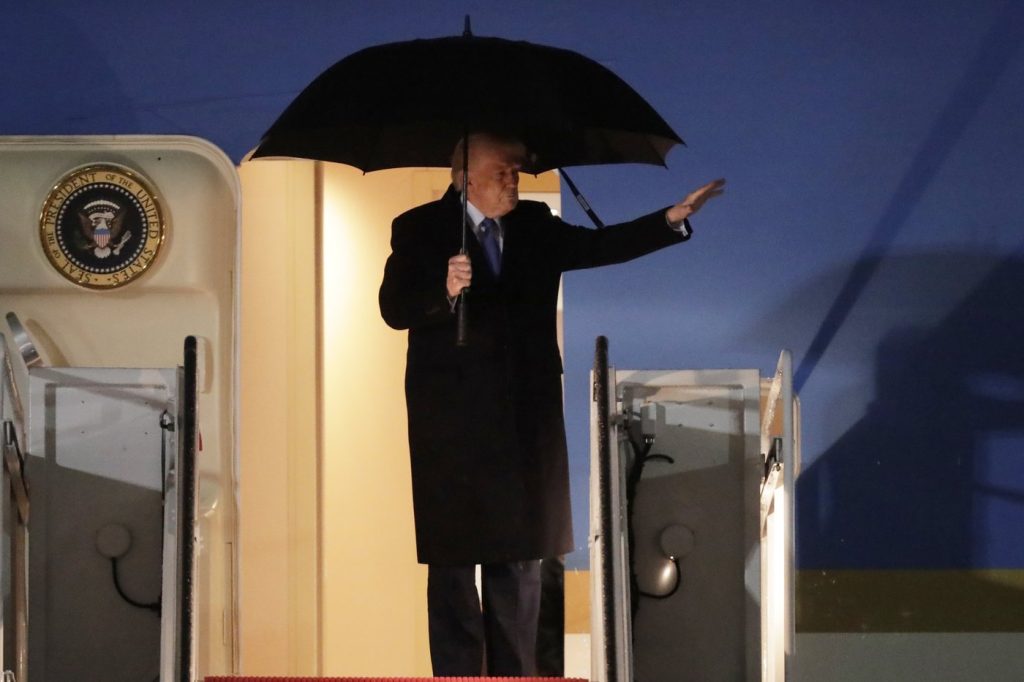NEW YORK (AP) — CBS corporate leaders are currently deliberating a potential settlement regarding a $20 billion lawsuit filed by President Donald Trump against the network's "60 Minutes." Since Trump's inauguration, "60 Minutes," a well-respected newsmagazine, has produced a series of critical stories about the new administration in every episode.
The most recent episode highlighted a concert that CBS sponsored, featuring a group of non-white middle and high school musicians who had won a competition to perform with the U.S. Marine Corps Band. Originally, the concert was canceled due to Trump's executive order that terminated diversity, equity, and inclusion initiatives. Correspondent Scott Pelley has narrated six out of the seven stories aired since Trump's inauguration, addressing significant issues such as the administration's policies on Ukraine, tariffs, and notable changes within the Justice Department. His investigative reporting has frequently sparked reactions, including remarks from Elon Musk, who criticized Pelley for highlighting controversies involving government agencies.
Amid this tense atmosphere, the production of "60 Minutes" has been heavily scrutinized. Tom Bettag, a veteran television news producer, suggested that although Trump's lawsuit seems intimidating, CBS is signaling that it will not be easily cowed. Meanwhile, Scott Pelley has emerged as a highly polarizing figure; conservative media figures have accused him of aiming to discredit Trump’s policies through the show's stories.
Trump's lawsuit, alongside a concurrent investigation by the Federal Communications Commission (FCC), alleges that "60 Minutes" engaged in election interference. This claim stems from the editing of an interview between Bill Whitaker and Kamala Harris, Trump's 2024 election opponent, with the contention that the editing misrepresented her responses on critical issues, including Israel. CBS, however, maintains that the editing was typical journalistic practice and not intended to manipulate Harris's statements.
Despite CBS's efforts to have the lawsuit and FCC investigation dismissed, Paramount Global's Shari Redstone reportedly has an interest in reaching a settlement, especially in light of Disney's previous payment to resolve a similar lawsuit concerning Trump. This situation is complicated by Paramount’s proposed merger with Skydance Media, which requires approval from the Trump administration.
Many within CBS express reluctance to settle, asserting that "60 Minutes" acted appropriately in its reporting. Bill Owens, the show's executive producer, emphasized to his staff last month that he would not apologize as part of any settlement process, highlighting a commitment to journalistic integrity. Correspondent Lesley Stahl articulated this sentiment when accepting a First Amendment award, asserting the importance of the show's fight for journalistic freedom.
While neither Owens nor Pelley commented on whether the show aims to convey a message through its reporting, Bettag noted that the stories produced by "60 Minutes" reflect the pressing issues at play and the show's dedication to high-quality journalism. Many of the segments aired over the last two months are particularly urgent and timely, contrasting with the program’s usual style of long-form storytelling. For example, Pelley’s report on Ukraine aired shortly after a significant confrontation between Trump and Ukrainian President Volodymyr Zelenskyy.
In a notable segment about USAID's operations, Pelley highlighted Trump's efforts to dismantle vital governmental oversight, suggesting the implications of such actions might be a violation of the Constitution. Elon Musk's controversial response on social media following this report included calls for severe consequences for the show's journalists, exemplifying the heightened tensions between powerful figures and media entities.
Another segment focused on a concert that was ultimately not meant to be performed, featuring talented high school students from diverse ethnic backgrounds. CBS collaborated with Equity Arc to hold a concert for these musicians outside Washington, D.C., ensuring that they could still showcase their talents despite the administration's suppression of diversity efforts.
Pelley's narrative is characterized by a deadpan delivery that often belies the sharpness of his critique. As the stories unfold, it becomes clear that “60 Minutes” aims to fulfill its mission of delivering impactful journalism during a time of significant political challenges.










